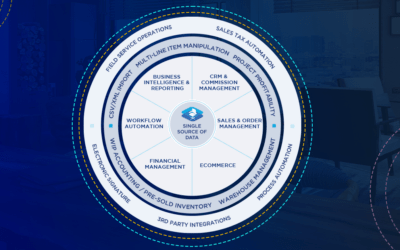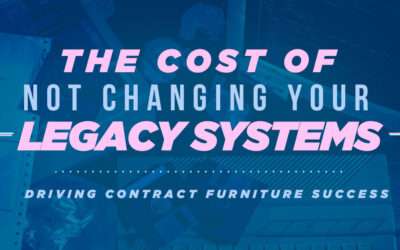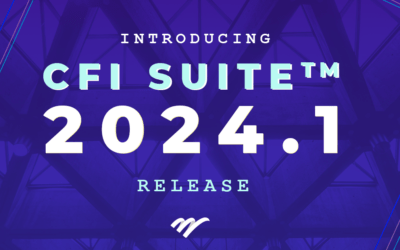The economic recession over the past three years has brought unprecedented challenges to businesses worldwide. From small enterprises to large corporations, the financial turmoil has forced organizations to reassess their strategies, particularly concerning investments in new technology solutions such as Enterprise Resource Planning (ERP) systems. This blog delves into the impacts of the recession on these investments, exploring how companies have adapted and what the future holds for technological advancements in a strained economic environment.
The Onset of Recession
When the recession hit, businesses found themselves in a precarious financial position. Revenue streams dried up, costs increased, and uncertainty became the new norm. In this context, investments in new technology, including ERP systems, faced significant scrutiny. Companies had to prioritize their spending, often deferring large-scale technology upgrades in favor of immediate survival tactics.
Impact on ERP Investment
Budget Constraints: The most immediate impact of the recession was tighter budgets. Many organizations slashed their IT spending, leading to postponed or canceled ERP projects. For those still proceeding with ERP investments, there was a noticeable shift towards cost-effective solutions. Companies sought more affordable, scalable options, sometimes opting for modular ERP systems instead of comprehensive, all-in-one solutions.
Focus on ROI: Return on Investment (ROI) became a critical factor in decision-making. Companies demanded quicker payback periods and clearer demonstrations of value from their technology investments. ERP vendors had to adjust their sales strategies, emphasizing short-term gains and tangible benefits to convince cost-conscious clients.
Shift to Cloud Solutions: The recession accelerated the shift towards cloud-based ERP solutions. Cloud systems offered lower upfront costs and reduced the need for extensive on-premises infrastructure, making them more attractive in a cash-strapped environment. The pay-as-you-go model provided financial flexibility, aligning well with the cautious spending patterns of recession-hit businesses.
Increased Emphasis on Efficiency: With reduced workforces and tighter budgets, businesses needed to do more with less. This necessity drove a focus on ERP features that enhanced operational efficiency and productivity. Automation, analytics, and integration capabilities became key selling points, as companies looked for ways to optimize their existing resources.
Vendor Adaptations: ERP vendors adapted to the changing market conditions by offering more flexible pricing models, shorter implementation times, and better customer support. Some vendors introduced industry-specific solutions, catering to sectors hardest hit by the recession, such as retail, manufacturing, and hospitality.
Contract Furniture Industry Impact
The contract furniture industry, encompassing the production and distribution of furniture for commercial spaces such as offices, hotels, and public buildings, has faced unique challenges during the economic recession. This sector has traditionally been driven by the growth of commercial real estate and corporate spending on office upgrades and expansions. However, the recession, coupled with the shift to remote work, has dramatically altered demand patterns, influencing investments in ERP solutions.
Market Disruptions and Shifting Demand: The contract furniture industry saw a significant decline in orders as companies postponed office renovations and new projects. This decrease in demand forced many furniture manufacturers to reconsider their operational strategies and focus on cost-cutting measures to survive the downturn.
Adoption of Cloud-Based ERP: To manage the fluctuating demand and streamline operations, many companies in the contract furniture industry turned to cloud-based ERP solutions such as CFI Suite. These systems offered flexibility and scalability, allowing businesses to adjust their operations quickly in response to market changes. Cloud ERP also facilitated better remote collaboration, essential for companies managing dispersed teams and supply chains during the pandemic.
Enhanced Supply Chain Management: The recession underscored the need for robust supply chain management within the contract furniture industry. ERP systems with advanced supply chain modules helped companies improve visibility and control over their inventory, manage supplier relationships more effectively, and reduce lead times. These features became crucial as manufacturers navigated disruptions and sought to maintain production efficiency.
Customization and Customer-Centric Solutions: With a greater emphasis on tailored solutions, contract furniture companies invested in ERP systems that offered customization capabilities. These systems allowed businesses to cater to specific client needs, from unique design specifications to flexible delivery options. The ability to offer personalized services became a competitive advantage in a market where differentiation was key to securing contracts.
Focus on Sustainability: The recession accelerated the industry’s focus on sustainability, driven by both regulatory pressures and growing customer demand for eco-friendly products. ERP systems that included sustainability modules helped companies track and report on their environmental impact, manage sustainable sourcing of materials, and comply with green building standards.
Through the right approach towards an ERP investment such as CFI Suite and a proper change management strategy, contract furniture companies could better navigate the economic challenges, streamline their operations, and position themselves for recovery and growth. The investments in ERP systems during the recession not only provided immediate operational benefits but also laid the foundation for future resilience and competitiveness in an evolving market.
Future Cloud ERP Outlook
As the global economy gradually recovers, the outlook for ERP investments is cautiously optimistic. Organizations have realized the critical role that technology plays in building resilience and agility. Future ERP investments are likely to focus on:
Digital Transformation: Continued emphasis on digital transformation initiatives to future-proof operations against potential economic disruptions.
Sustainability: Growing interest in ERP features that support sustainability goals, such as energy management, waste reduction, and regulatory compliance.
AI and Automation: Increased adoption of AI and automation within ERP systems to drive further efficiencies and innovation.
CFI Suite: Building Resilience and Achieving Long-Term Growth
The economic recession of the past three years has undoubtedly impacted organizations’ investments in new new ERP Solutions. While budget constraints and heightened scrutiny on ROI have slowed down some projects, the shift towards cloud solutions and the demand for efficiency-enhancing features have kept the ERP market dynamic. As businesses navigate the post-recession landscape, technology investments will remain a crucial element in building resilience and achieving long-term growth. Organizations that strategically leverage ERP systems will be better positioned to thrive in an increasingly digital and competitive world. This is where CFI Suite powered by NetSuite, the ERP with contract furniture functionalities comes into play as a strategic shift in building long-term growth.






